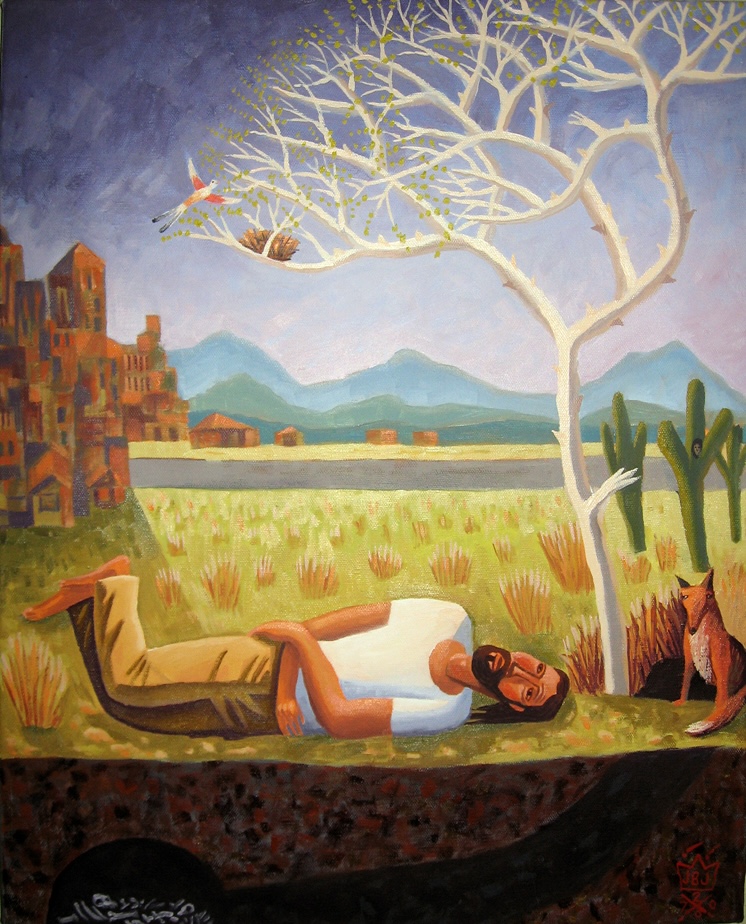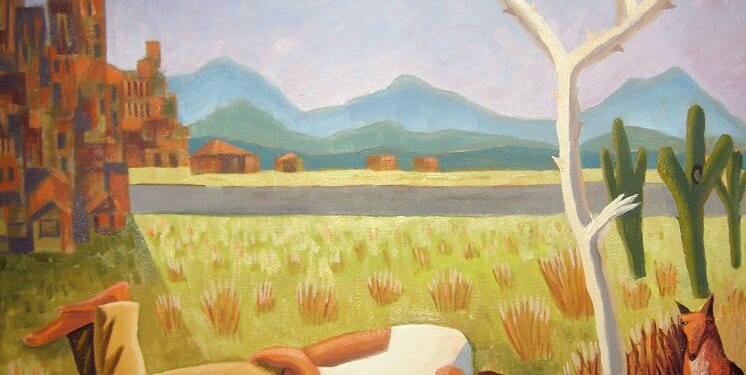Pope Leo issued an encyclical on poverty this week. Perhaps he should recommend it in part as a cure for our ills. “Blessed are the poor,” says Jesus, “for theirs is the kingdom of heaven.”
The only time I met the saintly Father Benedict Groeschel, he was too frail to walk on his own. He was one of several of us giving lectures to a Catholic group in Boston, in Faneuil Hall itself, if I remember right – in the belly of the secular beast. “If you want to die a happy death,” he said, “be near the poor.” He had lived among the poor all his life, so I trust he knew what he was talking about. That it is true, I can well believe. Why it is true is the question.
I’ve worked hard all my life so that my wife and my children, one of whom will never be able to live on his own, will be provided for when I die. I don’t spend money on myself. Even with this deliberate holding of material goods at arm’s length, I worry sometimes that I’m missing the good that Jesus holds out for us by poverty.
It’s why, when I pray the Beatitudes, I don’t say, “Blessed are the poor in spirit,” because for me that would offer an evasion. Nor do I think only that the poor will be blessed by compensation, as in the parable of the rich man and Lazarus. For Jesus was an exemplar of poverty here and now.
The sparrows had their nests and the foxes their dens, but the Son of Man had nowhere to lay his head. He went into the desert to pray, without food, without drink. On the Cross, He was stripped to the skin, and all His Apostles except for the young John abandoned Him.
If I think of the Aramaic in which Jesus addressed the crowds, the identification of poverty with blessedness seems the more immediate and powerful: Blessed the-poor / [for] to-them the-kingdom [of] Heaven. It is a line of Semitic poetry.
We may suppose that the kingdom of Heaven will be given to them as a consequence of their poverty, but we may also say that poverty is a condition of their receiving the kingdom of Heaven, not by the arbitrary will of God, but by the nature of the two terms.
To be poor as Jesus was poor is to welcome the kingdom of God. If we know what poverty and the kingdom of God are, we know they are inseparable.
I do not wish to be misunderstood, though I feel I am groping toward a truth only dimly perceived. We would go wrong, I think, to view this poverty as strictly material, since the materially poor can be as grasping and as hardhearted as any Scrooge.
We would also go wrong to spiritualize it completely, so that people can rest content with their full granaries, and look forward to an easy old age, assured by God that they are good, or good enough to get by.

Nor can it be half of one and half of the other. Somehow we must cultivate a noble and free disparagement of the goods we own for a brief time on earth, as if they did not matter; or our poverty must be the material sign of, or the embodied discipline for, that humility which alone admits God into our hearts.
Somehow we must work at poverty, and that will be easier to do if, as Father Groeschel said, we rub shoulders with the poor.
I cannot claim to know how to do this. Nothing in the life that surrounds me will give me the least clue, let alone encouragement.
Obviously, the destitute must be cared for, and poverty entangled with moral chaos must be fought on fronts both material and spiritual. The state can do a fair job with the former; is helpless with the latter, and sometimes worse than helpless; sometimes it sows the moral evil that impoverishes body and soul.
But I wonder how much of the harm of poverty among us can be alleviated by a general embrace of poverty, or at least by a distaste for wealth, flash, power, glory, and the ceaseless noise of the licentious.
There are partial precedents. Mink coats once commanded prices that, expressed in constant dollars, would stagger us now. But those same coats are now disdained. You can pick one up at an antique store for peanuts.
A similar thing might happen to over-built houses, if we conceived a salutary distaste for them. No family needs two full bathrooms. Children of the same sex are better off sharing a bedroom. We are better off without two televisions. Lord knows, we may be better off without any at all.
Then there is the paradox of the two-income family. When it becomes the norm, the price of housing floats upward to meet what the market can bear, regardless of any benefit to how we live as families.
We have seen the same inflation, accompanied by a cratering in intellectual accomplishment and social good, when the costs of a college education were slush-funded by government-backed loans. The national government made things worse by pushing employment policies that led businesses to use colleges as credentialing agencies, with young people, parents, and taxpayers footing the bill.
Think of a bridge that everyone must cross, like it or not, and then think of the toll-gatherer, contributing nothing to the common good, and extorting from everyone what they can afford, not what the use of the bridge actually contributes to human life.
But see, I am drifting from the point. All discussions of poverty tend to drift, as if the problem were thine, not mine. We need to learn the healthful ways of poverty, so closely related to humility. Only children need not stoop to enter the door to the kingdom of God.











